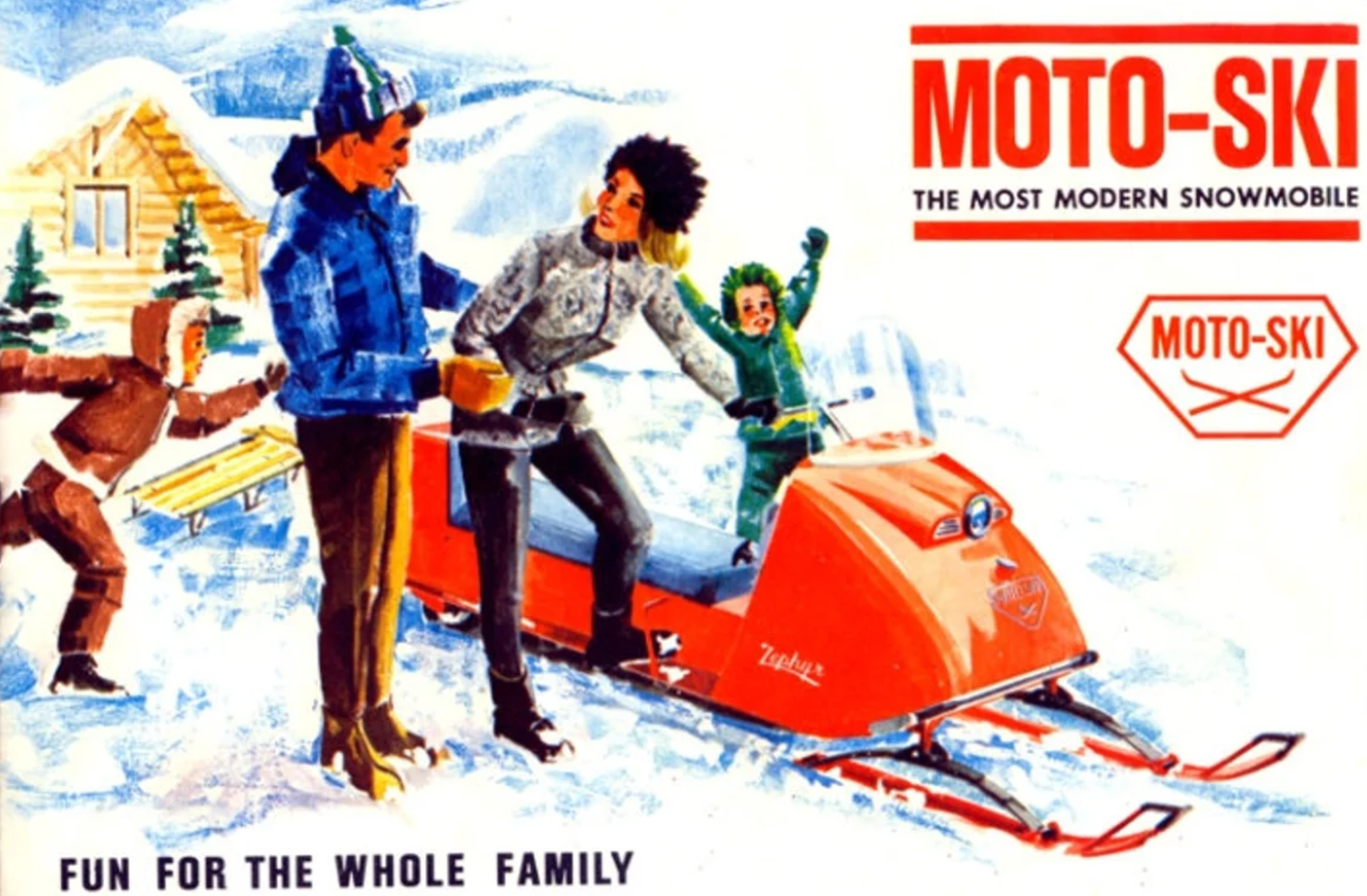Table of contents
ToggleThe history of Moto-Ski, an iconic brand in the world of snowmobiling, is a captivating testament to the ingenuity and passion for winter sports. Founded in Quebec, Moto-Ski left an indelible mark on the snow vehicle market through innovative and high-performance models that charmed generations of snow enthusiasts.
The Origins of Moto-Ski
Moto-Ski’s journey began in the small town of La Pocatière, Quebec. Raoul Pelletier, already with experience in the snowmobiling industry, joined forces with Jean-Yves Bélanger to realize a shared vision. Their goal was to produce snowmobiles that were accessible, reliable, and high-performing. They established the company in 1962, during a time when the snowmobiling industry was thriving.
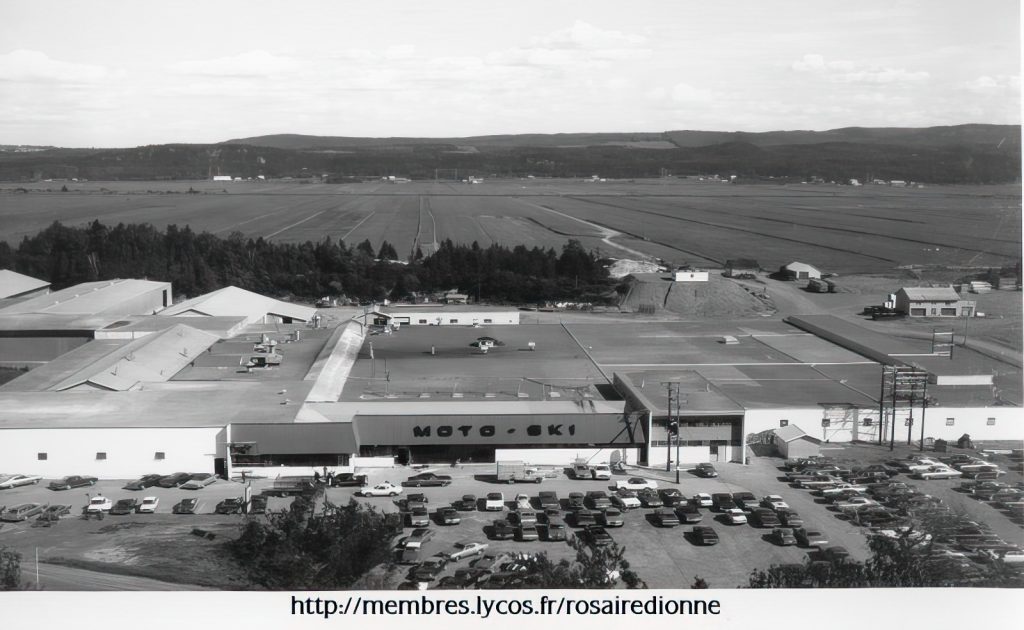
Initial Steps and Challenges
The early days were not without their challenges. Moto-Ski had to carve a path in a competitive market where several other brands were also vying for dominance. However, thanks to their determination and innovative capabilities, Pelletier and Bélanger succeeded in creating standout products.
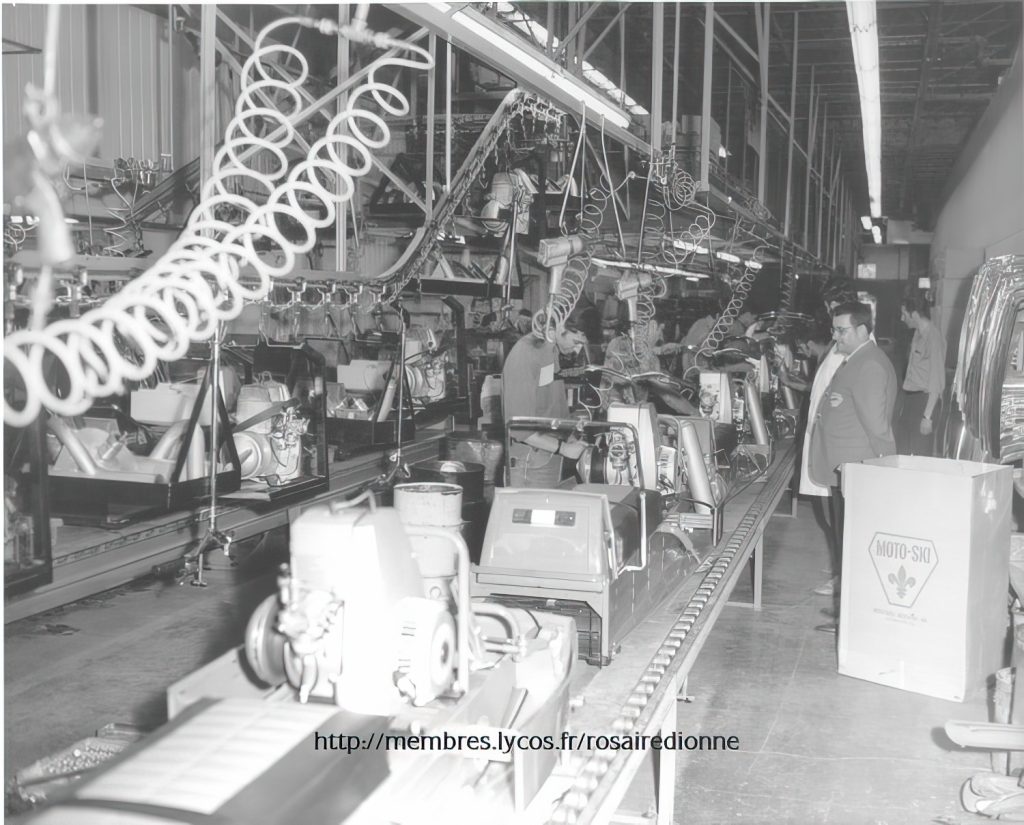
The First Model
Moto-Ski’s initial model, launched shortly after the company’s founding, immediately garnered attention for its quality craftsmanship and performance. This early success laid the foundation for what would become a long series of innovative and cherished snowmobiles.

Growth and Evolution
In the following years, Moto-Ski experienced rapid growth, expanding its product range and introducing technical innovations. It goes without saying that they revolutionized the industry.
Models such as the Capri, the Zephyr, and the Mirage are just a few examples of Moto-Ski’s significant contributions to the snowmobiling industry.
Innovation at the Core of Development
Moto-Ski never stopped innovating to stay at the forefront of snowmobile technology. The company distinguished itself through the introduction of improved suspensions, more efficient cooling systems, and chassis designs optimized for better stability and maneuverability. Furthermore, Moto-Ski was one of the first manufacturers to experiment with lightweight materials, reducing the weight of their machines to enhance performance and agility.
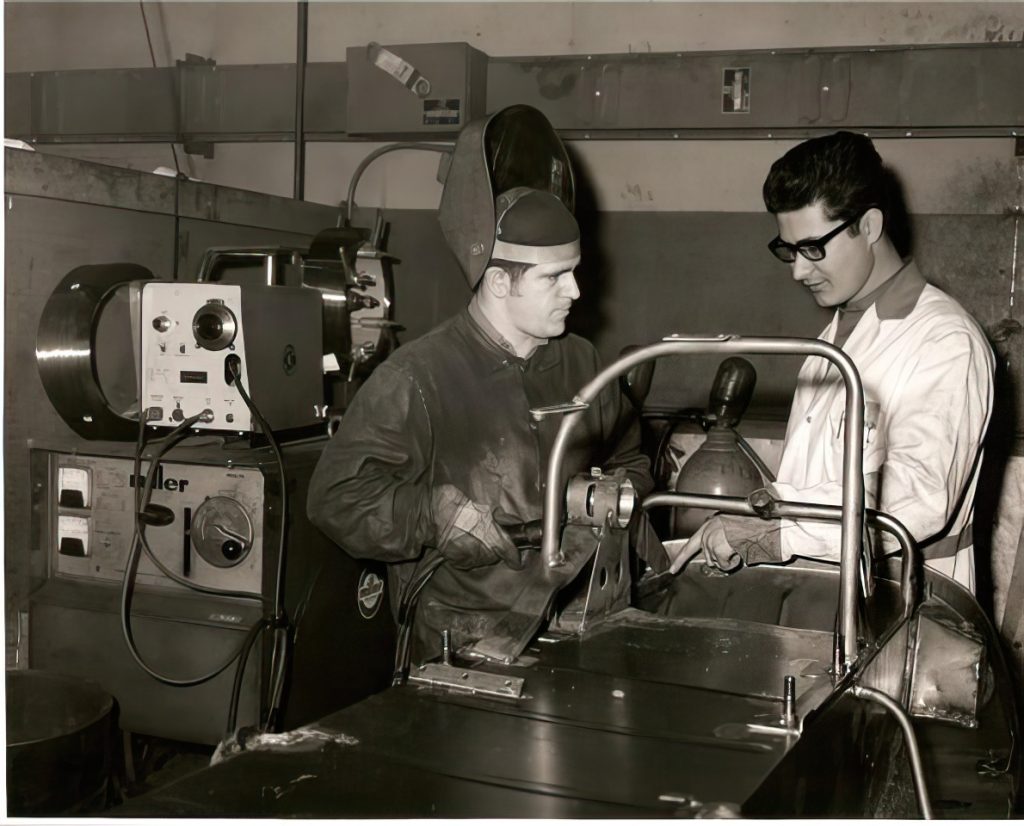
Moto-Ski’s Engines: Technical Precisions
Moto-Ski introduced several engines throughout its history, emphasizing the performance, reliability, and innovation of each one.
Here are more technical details on some engines used in their models.
Engines in Early Moto-Skis
- Name: Generic two-stroke engines
- Displacement: Varied, often around 300cc
- Power: Approximately 18 to 25 horsepower, depending on the model and configuration
Rotax Engines in Later Models
Rotax provided several engines with different specifications to Moto-Ski. The Rotax engines were known for their advanced engineering and superior performance.
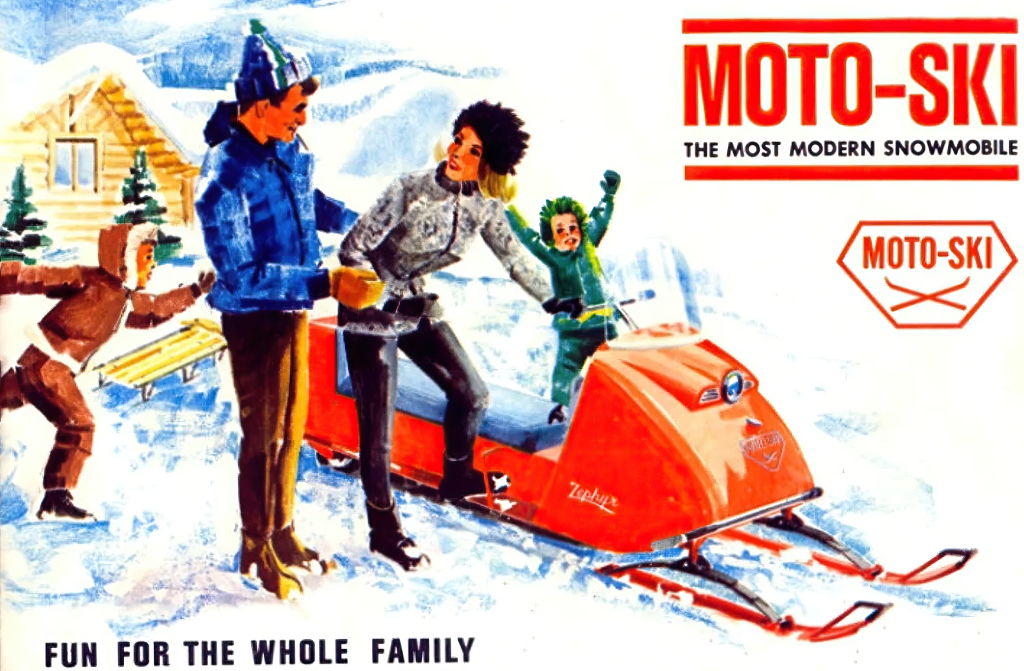
Engines Specific to Certain Models
Capri Moto-Ski
- Engine: Often a Rotax 299 or equivalent
- Displacement: 299cc
- Power: Approximately 18 horsepower
Moto-Ski Zephyr
- Engine: Varied, including options like the Rotax 340
- Displacement: Around 340cc
- Power: Approximately 25 to 30 horsepower, depending on the specific model
Moto-Ski Mirage
- Engine: Rotax 377 or more advanced versions for later models
- Displacement: 377cc or more for newer models
- Power: Approximately 36 horsepower for the Rotax 377, higher for later versions
These engines, with their technical specifications, played a crucial role in establishing Moto-Ski as a benchmark brand in the snowmobiling industry. They not only provided the necessary power for optimal performance but also ensured reliability and endurance in harsh winter conditions.
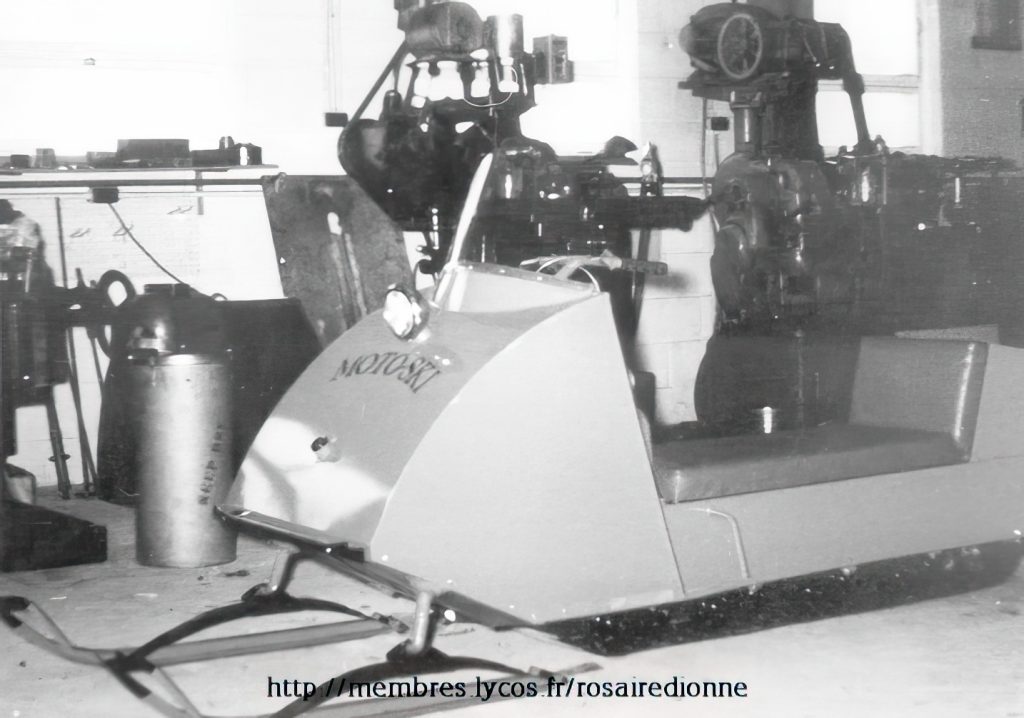
Popular Moto-Ski Models
Moto-Ski Capri
The Moto-Ski Capri, introduced in the 1960s, is arguably one of the brand’s most iconic models. With its elegant design and remarkable performance for its time, the Capri won the hearts of many snowmobile enthusiasts.
- Production Years: Early 1960s
- Key Innovations: The Capri was renowned for its robust and reliable engine, as well as its ergonomic design. This model introduced comfort features like softer seats and an adjustable handlebar, making long-distance rides more enjoyable.
- Market Impact: The Capri attracted a diverse clientele thanks to its versatility and value for money, establishing Moto-Ski as a trusted brand in the snowmobiling community.
The Moto-Ski Zephyr
Arriving a bit later, the Moto-Ski Zephyr stood out for its lightweight and maneuverability. This model was particularly appreciated for its user-friendliness, making it accessible even to novice snowmobilers.
- Production Years: Mid-1960s
- Key Innovations: Lightweight and agile, the Zephyr introduced a new, lighter chassis design and improved weight distribution. These features provided drivers with a more intuitive and responsive riding experience, especially in hilly terrains.
- Market Impact: Its accessibility and ease of use made the Zephyr a popular choice for beginners and occasional snowmobilers.
The Moto-Ski Mirage
In the 1970s, the Moto-Ski Mirage revolutionized the market with its futuristic appearance and technical innovations. This model notably introduced significant improvements in suspension and engine performance.
- Production Years: 1970s
- Key Innovations: The Mirage marked a turning point with its futuristic design and technical advancements. This model incorporated an advanced suspension system for better shock absorption and increased comfort. The engine was also a standout feature, offering superior power and energy efficiency.
- Market Impact: With its distinctive look and enhanced performance, the Mirage targeted a more demanding clientele, positioning itself as a top choice for experienced riders.
The Legacy of Moto-Ski
Although the Moto-Ski brand was ultimately absorbed by Bombardier in the 1980s, its legacy endures. Despite this transition, Moto-Ski models not only paved the way for more modern generations of snowmobiles but also continue to inspire enthusiasts and collectors.
Conclusion
Moto-Ski remains a legendary name in the history of snowmobiling. Thanks to its innovations, popular models, and unwavering commitment to quality and performance, Moto-Ski has left an indelible mark on the hearts of winter sports enthusiasts.
Today, even as snowmobiles have evolved, the spirit of Moto-Ski continues to sweep across snowy trails, serving as a poignant reminder of the golden age of this pioneering brand.


